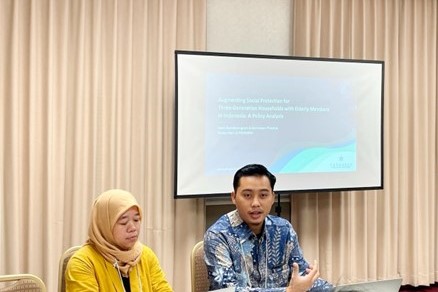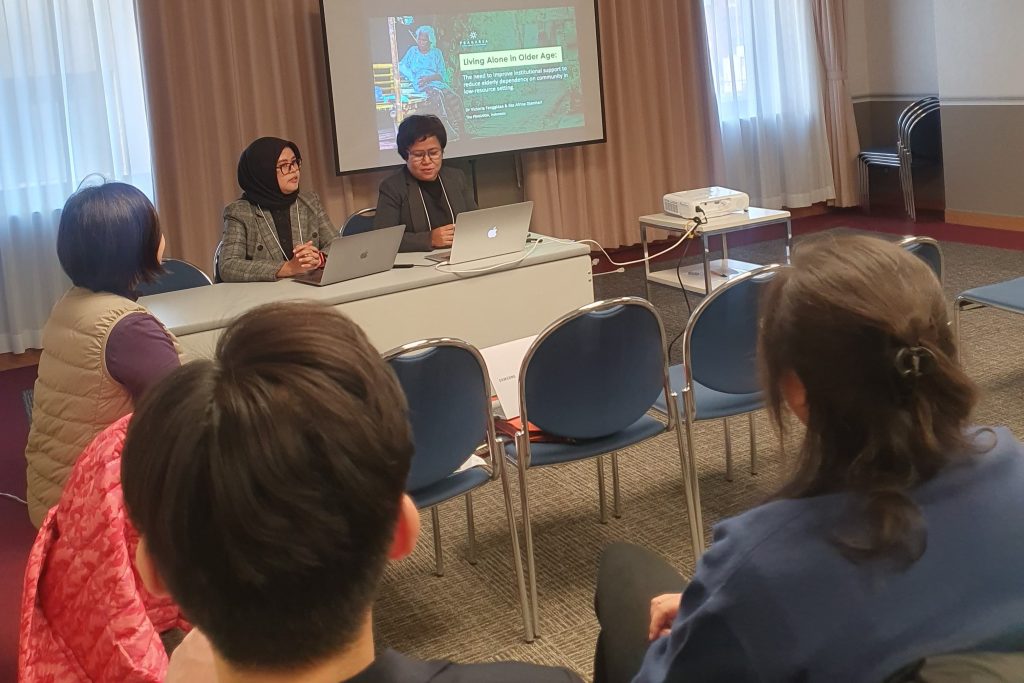Despite having the potential to contribute to development, the elderly population has not received much attention until now. The existence of the elderly is even more considered a burden, and vulnerable to being neglected.
JAKARTA, KOMPAS – The elderly population in Indonesia continues to increase from year to year. Even in five decades (1971-2019) the number of elderly people reached around 25 million (9,6 percent) of the total population of Indonesia. However, until now there is no disaggregated data on the elderly population, so the fate of the elderly is often not a priority consideration in the formulation of national policies.
Therefore, the government is expected to immediately update the data on the elderly population (elderly) or senior citizens, especially disaggregated data, so that various programs prepared and run by the government touch the basic problems of the elderly.
These various problems of the elderly population were discussed in the "National Conference on Protection of the Elderly" which was held online by the Association of Indonesian Legal Aid Foundation (LBH) APIK together with the Coalition for Communities Caring for the Elderly (KuMPUL) on 22-24 September 2021.
Apart from not having disaggregated data, the fulfillment of the rights of the elderly has yet to touch on some basic problems, because efforts to improve the welfare of senior citizens still refer to Law No. 13 of 1998 concerning the Welfare of the Elderly, which is considered not in accordance with conditions that have undergone many changes.
Eka Afrina Djamhari
Some of the failures of existing senior citizen welfare policies are caused by not being touched by the root problems that are actually faced by senior citizens.
"Several failures of existing senior citizen welfare policies are caused by not being able to touch the root of the problems that are actually faced by senior citizens," said Eka Afrina, from the KuMPUL Representative when reading the conclusions/recommendations from the National Conference on Protection of the Elderly, at the closing of the conference, Friday. (24/9/2021).
Therefore, updating of integrated data about senior citizens needs to be done digitally and in stages starting from the community, village government to the central government. In addition, the government is expected to provide opportunities and ensure easy accessibility to the public when needed.
At the opening of the conference, in a public discussion that presented speakers from representatives of KuMPUL (Eva Sabdono, Adhi Santika, and Yossa Nainggolan), and Khotimun Sutanti, from the Association of LBH APIK Indonesia, they also raised various situations of the elderly in Indonesia today. The existence of the elderly population is a gift as well as a challenge, both now and in the future.
On the one hand, elderly citizens or senior citizens who are healthy, active, and productive are the nation's assets. On the other hand, the large number of senior citizens is often perceived as a burden because of their low health, social and economic capacity.

Exclusion of the elderly in various sectors
Eva said that basically policies related to the elderly population are directed according to Law 13/1998 and global agreements based on national interests and development goals, to encourage healthy, productive, independent, physically and mentally prosperous older people. So far there are many policies and programs for the elderly by both the government and the community. "However, the exclusion of the elderly still occurs in various sectors," said Eva.
Exclusion occurs due to poor coordination between ministries/agencies and other stakeholders, disaggregated data on the elderly that are less accurate and comprehensive, and unequal social relations in society such as neglect and violence against the elderly.
“Weak disaggregated data has resulted in the reality of the situation of the elderly being unable to be seen comprehensively so that it has not become a priority in the national development plan. The elderly protection program according to the rights of the elderly on an ongoing basis should be an important and integrated part of the national development program," said Eva.
Khotimun revealed that the findings of LBH APIK in the field, the results of the assessment in 3 provinces (Bali, North Sumatra, and Yogyakarta), still lack sufficient data on the elderly.
"Data disaggregated for the elderly are often not available at the village level, data on violence against the elderly is still minimal and does not contain a more comprehensive disaggregation, and there is no annual data update," he said.
The Deputy for Coordination of Social Welfare Improvement, Coordinating Ministry for Human Development and Culture, Tubagus Ahmad Choesni, when closing the conference, welcomed the results and recommendations of the National Conference on Elderly Protection.
"We will immediately review the results of this national conference, and we will discuss it in a coordination meeting," he said, hoping that the results of this conference would also color the implementation of government policies related to the elderly.

Sumber: Kompas.id



